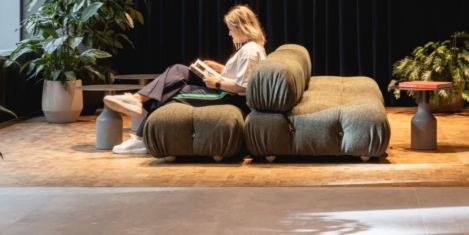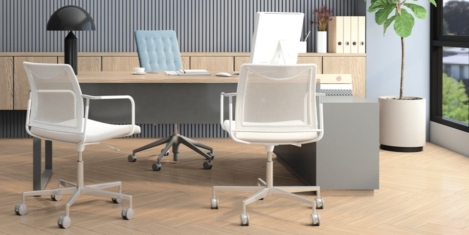To provide the best experiences, we use technologies like cookies to store and/or access device information. Consenting to these technologies will allow us to process data such as browsing behaviour or unique IDs on this site. Not consenting or withdrawing consent, may adversely affect certain features and functions.
The technical storage or access is strictly necessary for the legitimate purpose of enabling the use of a specific service explicitly requested by the subscriber or user, or for the sole purpose of carrying out the transmission of a communication over an electronic communications network.
The technical storage or access is necessary for the legitimate purpose of storing preferences that are not requested by the subscriber or user.
The technical storage or access that is used exclusively for statistical purposes.
The technical storage or access that is used exclusively for anonymous statistical purposes. Without a subpoena, voluntary compliance on the part of your Internet Service Provider, or additional records from a third party, information stored or retrieved for this purpose alone cannot usually be used to identify you.
The technical storage or access is required to create user profiles to send advertising, or to track the user on a website or across several websites for similar marketing purposes.
 A new poll claims that over a quarter (27 percent) of workers would consider leaving their job due to poor workplace design, as an increasing number of companies phase out remote working. Commissioned by design and architecture studio MoreySmith, the survey of 2,000 UK adults by Yonder asked the public about the importance of the office environment for their wellbeing at work. Half of those that responded said that the amenities of a workplace would impact their decision on whether to work for a company, rising to 57 percent of 25-34 year olds. (more…)
A new poll claims that over a quarter (27 percent) of workers would consider leaving their job due to poor workplace design, as an increasing number of companies phase out remote working. Commissioned by design and architecture studio MoreySmith, the survey of 2,000 UK adults by Yonder asked the public about the importance of the office environment for their wellbeing at work. Half of those that responded said that the amenities of a workplace would impact their decision on whether to work for a company, rising to 57 percent of 25-34 year olds. (more…)
















 Over two thirds of UK employees do not feel a sense of connection and belonging at work, according to a new poll from
Over two thirds of UK employees do not feel a sense of connection and belonging at work, according to a new poll from 








 Vulnerable narcissistic leaders are especially likely to make employees irritated during crisis situations, reveals new research from NEOMA Business School. Birgit Schyns, Distinguished Professor of People & Organisations at NEOMA, and co-authors analysed survey data on workers in the UK education sector during the COVID-19 pandemic. Respondents reported their levels of irritation and Coronavirus-related worry in five weekly surveys, as well as their experiences with vulnerable narcissistic leadership – an unstable form of leadership characterised by covert feelings of entitlement.
Vulnerable narcissistic leaders are especially likely to make employees irritated during crisis situations, reveals new research from NEOMA Business School. Birgit Schyns, Distinguished Professor of People & Organisations at NEOMA, and co-authors analysed survey data on workers in the UK education sector during the COVID-19 pandemic. Respondents reported their levels of irritation and Coronavirus-related worry in five weekly surveys, as well as their experiences with vulnerable narcissistic leadership – an unstable form of leadership characterised by covert feelings of entitlement. 









